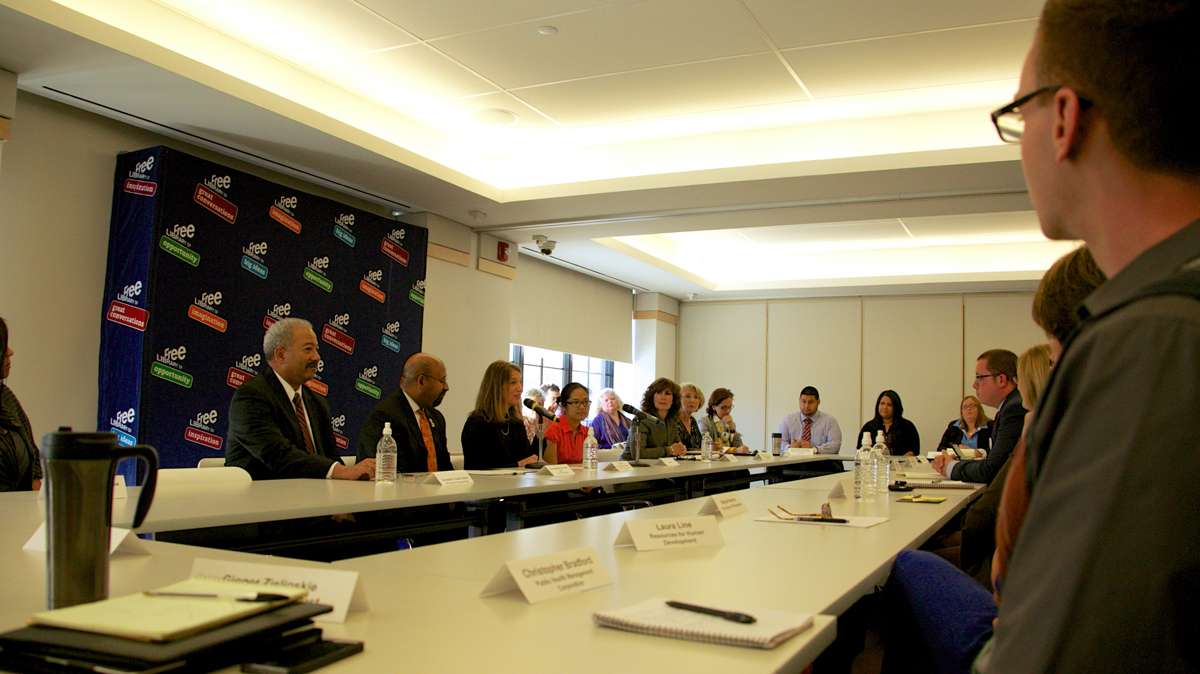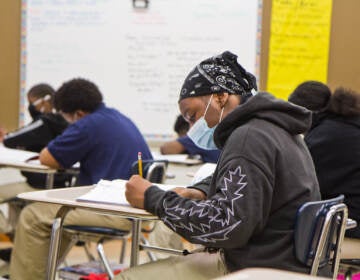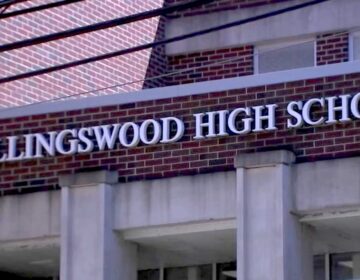Cheyney’s challenges extend beyond funding, expert says
A lawsuit filed by alumni and supporters of Cheyney University alleges Pennsylvania has discriminated against the historically black school.
The school has struggled with enrollment and finances, and the alumni say it’s because the state has starved it of resources, putting programs in nearby schools at Cheyney’s expense.
At a press conference this week, Michael Coard, a Cheyney alumnus who is part of the lawsuit, said the school “now has an all-time-low student enrollment and an all-time-high budget deficit … the cause of that is racial discrimination.”
Among other things, the suit alleges that the state undercut Cheyney by replicating its computer science programs in nearby West Chester University, creating undue competition for students.
State officials have responded by noting that Cheyney, which is nestled in a green, rolling campus near West Chester, gets far more funding per student than most Pennsylvania state schools — about $14,000 per student compared with the state average of about $5,000 per student, according to a representative of the state’s university system.
But Marybeth Gasman, the head of the Center for Minority-Serving Institutions at the University of Pennsylvania, said there’s more to the story than that. It’s true that Cheyney gets more per student than most state schools, she said. But it’s also true, she said, that Cheyney’s students, many of whom come from underfunded urban districts and low-income families, need more support than most undergrads.
And at the same time, she said, Cheyney’s alumni donations and endowments are significantly lower than what she calls “majority” schools.
The upshot, she said, is that Cheyney’s students aren’t getting the help they need.
“In America, overall, we spend the most on the students that need it the least, and the least on the students who need it the most,” she said. “They need support.”
Gasman said that, based on past history both here and in other states, the alumni’s concerns could well have merit. She said she hopes Pennsylvania finds a way to get Cheyney the funding it needs.
But in the long run, she said, the solution to Cheyney’s troubles will lie more in leadership than lawsuits. In today’s competitive environment, being a historically black school isn’t enough, she said. And while Cheyney has made a good start by establishing a focus on science and technology, she said, all schools need to make it a top priority to define their strengths and market them effectively to prospective students.
“Students are savvy these days. They can go anywhere. You have to prove that you’re are one of the best places for them. And for me, HBCUs have a really strong track record of preparing students for graduate and professional study, of taking care of students and creating a family environment,” she aid. “But people have to know that.”
The same goes for legislators and other funders, she said; it’s up to Cheyney to build networks of supporters and make the value of its offerings crystal clear.
“Even institutions like Penn have to prove that they’re making a difference, that they’re being efficient in the education they’re providing. Not as much as HBCUs, because HBCUs are still held to a higher standard,” Gasman said. “But you do have to show that you’re having a positive impact.”
Gasman said she’s encouraged to see a generation of energetic young leaders taking over at other HBCUs, and she hopes the same thing happens at Cheyney. The school’s president stepped down abruptly last summer, after a seven-year run in which deficits grew and enrollment dropped. The search for a new leader is currently under way.
WHYY is your source for fact-based, in-depth journalism and information. As a nonprofit organization, we rely on financial support from readers like you. Please give today.











